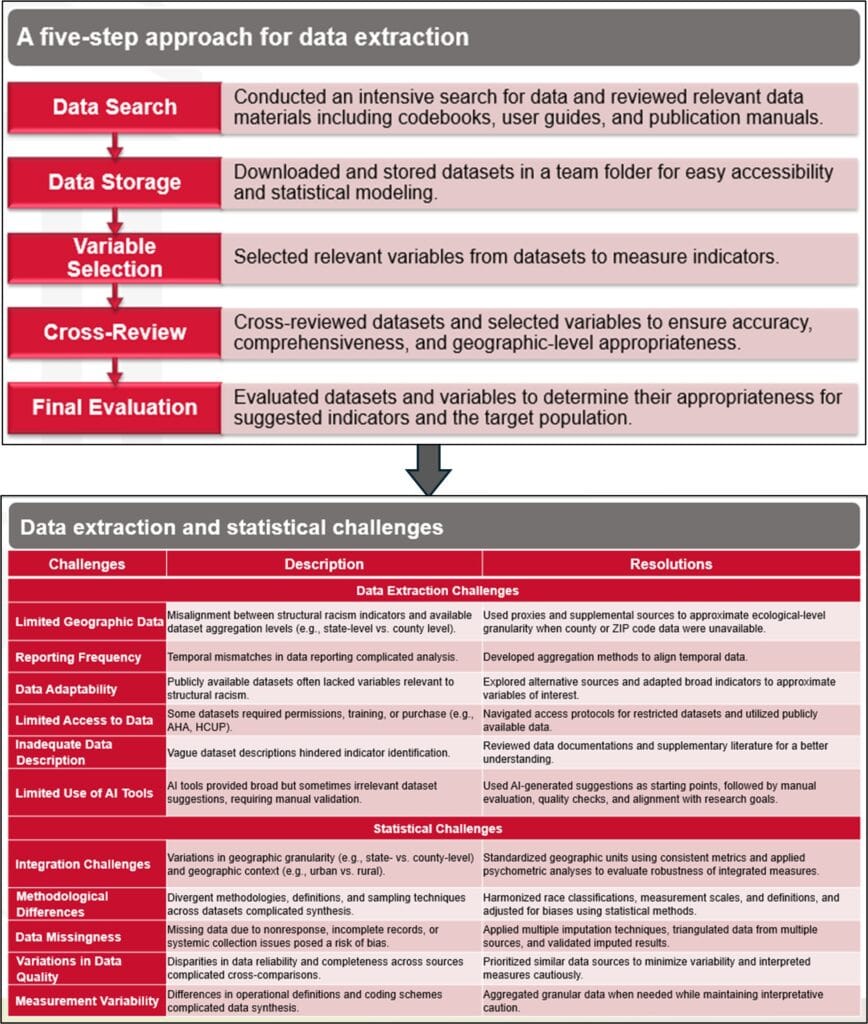Health Disparities
Developing an Index to Measure Structural Racism: Methodological Challenges and Considerations Yu-Hua Fu* Christopher Amissah Alisha A. Crump Yu-Hua Fu Sheela Khadka Jennifer Contreras Salene M. W. Jones Bryce B. Reeve Ester Villalonga Olives
Introduction: Access to valid and reliable measures of structural racism is essential for addressing health inequities. We developed an ecological-level index to assess structural racism among Black and Hispanic populations in the U.S.
Methods: We adapted the National Institute on Minority Health and Health Disparities framework to guide the development of the index. A content development team comprising social epidemiologists (N=4), an expert panel of health inequality researchers (N=5), community members (N=3), and economic inequality specialists (N=2) participated in a modified Delphi process alongside psychometricians (N=2) to build consensus on selecting key indicators of structural racism. Once consensus was reached, we followed a five-step approach to extract geographic-level data from existing databases to measure the proposed indicators. In this process, we encountered several challenges that needed to be resolved (Fig. 1).
Results: We categorized the challenges into two types: 1) Data challenges included barriers related to data availability and completeness at county or ZIP-code levels. Some datasets had inadequate descriptions and inconsistent reporting frequencies. Adapting data to fit our needs was also challenging, as many did not capture the granularity required to meaningfully assess structural racism such as racial disparities in access to business loans and mortgages; 2) Statistical challenges involved complexities in integrating diverse datasets, each with its unique methodologies, formats, and scales. Efforts to overcome these challenges focused on standardizing data across sources to ensure consistency, carefully addressing missing data to avoid bias, and resolving variability in indicator measurement.
Conclusion: Addressing these challenges was crucial for creating a reliable index of structural racism. Future research should use advanced data integration techniques and AI to enhance data processing, address missing data, and ensure consistency.

